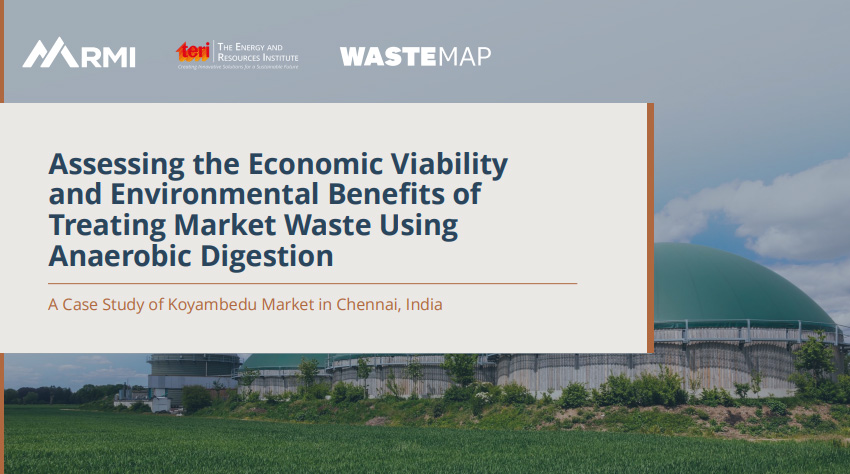Assessing the Economic Viability and Environmental Benefits of Treating Market Waste Using Anaerobic Digestion: A Case Study of Koyambedu Market in Chennai, India
There is significant potential to increase waste diversion in India, which can extend the lifespan of disposal sites, advance a circular economy, reduce emissions, and improve air quality and public health.
In Chennai, markets like the Koyambedu Wholesale Market Complex (KWMC) produce large amounts of waste daily, including fruits, vegetables, and flowers. Lack of source separation and inadequate treatment infrastructure means that much of this waste ends up in dumpsites.Sustainable solutions for managing waste, including organic market waste, are urgently needed. Diverting this waste for alternative uses, such as biogas for cooking or transportation fuel can reduced greenhouse emissions and improved waste management.
This case study explores multiple scenarios to highlight the economic viability and environmental benefits of diverting organic waste from Koyambedu Market, Chennai to a planned anaerobic digestion facility. It also identifies best practices to enhance market waste management, including strategies to treat hard-to-digest feedstocks.

